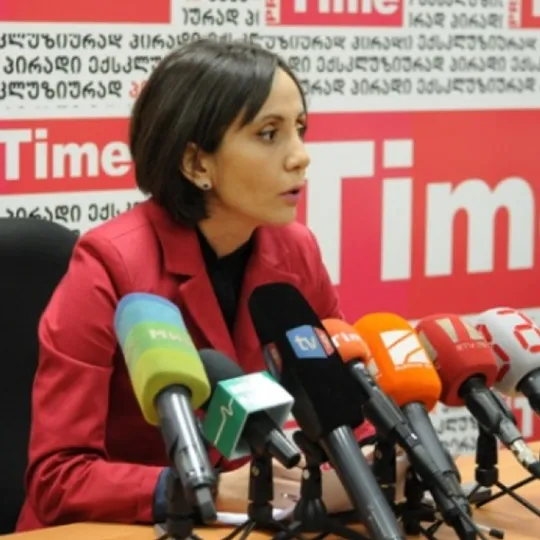
Tea Tutberidze
PhD Candidate
Research interests
- Conflict
- Politics
- History
Biography
Tea Tutberidze is a PhD candidate in the Faculty of Social Sciences & Public Policy, Department of War Studies, at King’s College London.
MA International Relations, School of Politics & International Relations, Queen Mary University of London.
Combined Undergraduate & MA Law, Faculty Juridical (Law), Ivane Javakhishvili Tbilisi State University.
Research Interests
- International Politics
- US, EU, NATO, and Eastern European countries
She is particularly interested in European defence, NATO, and its future, as well as democracy, liberalism, globalisation, global stability and security, effective crisis management and conflict prevention.
Thesis
A comparative study of pro-democracy and rule of law reforms in Georgia, Ukraine, and the Baltic States in the context of Russian threats and interference
Her thesis examines the problems of pro-democracy and rule of law reforms after the collapse of the Soviet Union in Ukraine, Georgia, Latvia, Lithuania and Estonia after they re-gained their independence. It seeks to explain why Ukraine and Georgia have been unable to establish consolidated democracies and why, in contrast, Latvia, Lithuania and Estonia have managed to do so. It investigates the obstacles to progress in democratisation after the collapse of the USSR, exploring similarities and differences in the challenges of democratic development these states faced after the collapse of the Soviet Union. One of the main aims of her research is to assess the extent to which Western engagement with these five states helped, or failed to help, democracy develop.
Tea’s research will be the first work to draw on extensive elite interviews in order to examine the way that post-Soviet democratisation occurs. It will examine the attempts to democratise post-Soviet states while dealing with the challenges of ongoing hegemonic involvement/interference from the former imperial centre. This requires an investigation of both inter-state and intra-state politics.
Research question:
Can a country (particularly an occupied post-Soviet country) develop consolidated democracy without security guarantees (security guarantees from the Alliance of NATO, or the US), especially if they have external threats and interference from undemocratic regimes (like Russia) which try to eliminate a small state’s young democracy?
Supervisors
- First supervisor: Dr Ruth Deyermond
- Second supervisor: Dr Natasha Kuhrt
Events

Russia’s Imperialistic and Hegemonic Attitudes, War in Ukraine and Threats to European Security and Democracy
Tea Tutberidze examines the attempts to democratise post-Soviet states while dealing with the challenges of ongoing hegemonic involvement/interference from...
Please note: this event has passed.
Events

Russia’s Imperialistic and Hegemonic Attitudes, War in Ukraine and Threats to European Security and Democracy
Tea Tutberidze examines the attempts to democratise post-Soviet states while dealing with the challenges of ongoing hegemonic involvement/interference from...
Please note: this event has passed.
